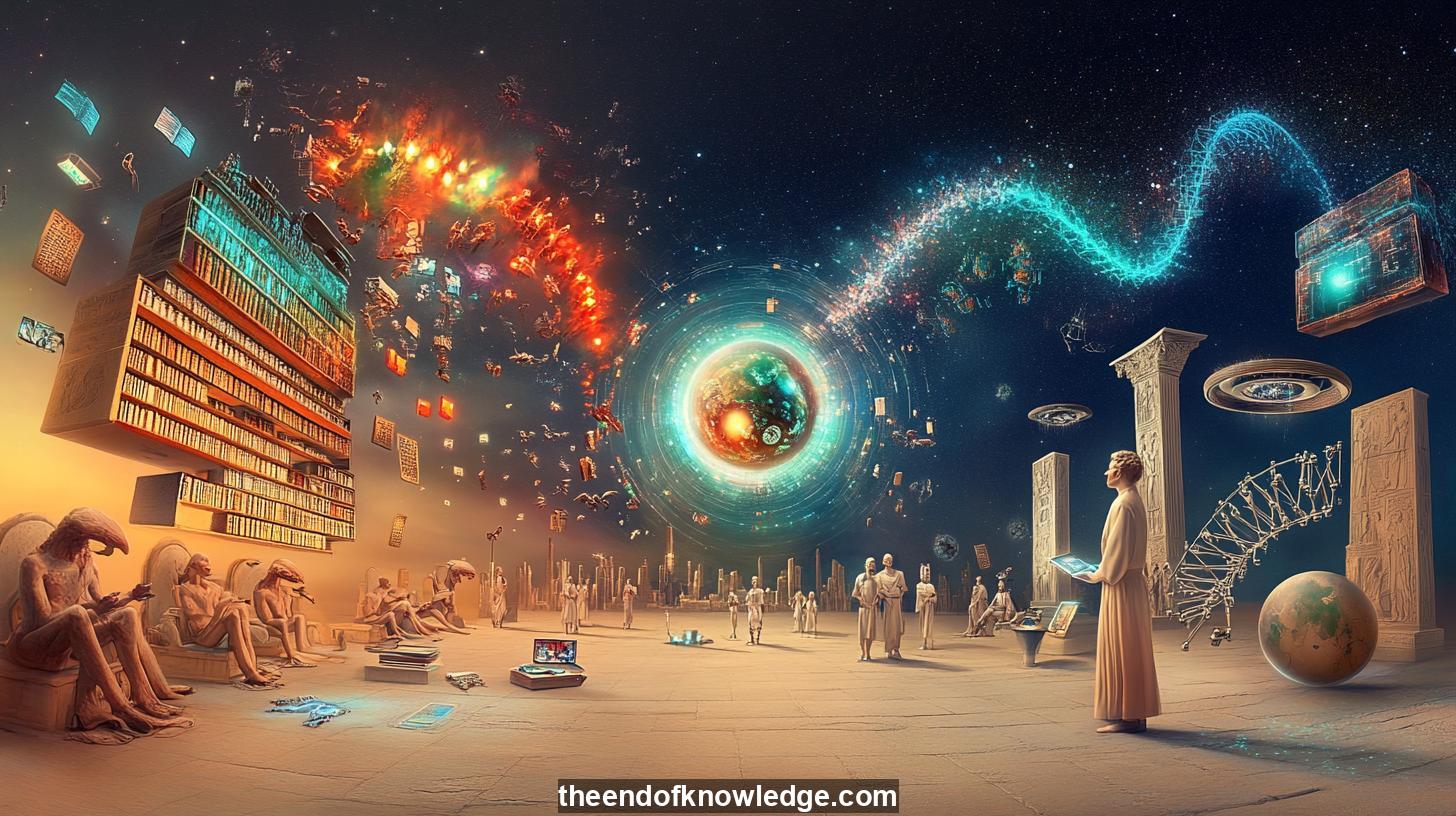 >
>
Concept Graph, Resume & KeyIdeas using DeepSeek R1 :
Resume:
30 Key Ideas:
1.- AI is transforming scientific research by accelerating discoveries and offering new analytical tools.
2.- The integration of AI in science challenges traditional religious narratives about human purpose and divine creation.
3.- AI could either complement or disrupt existing religious beliefs, potentially leading to new spiritual movements.
4.- The ethical implications of AI, such as autonomy and decision-making, raise questions about human values and morality.
5.- AI's ability to process vast amounts of data enables new insights into complex phenomena, blurring the lines between science and philosophy.
6.- The concept of singularity in AI suggests a future where human and machine intelligence converge, reshaping societal structures.
7.- AI challenges the role of science as a dominant narrative, potentially leading to a reevaluation of its relationship with religion.
8.- highlights the tension between centralized and decentralized AI systems, impacting governance and accessibility.
9.- AI's influence on education and knowledge dissemination could democratize learning but also risks creating new inequalities.
10.- The intersection of AI and spirituality raises questions about the nature of consciousness and existence.
11.- AI's role in simulations and digital twins creates new opportunities for scientific exploration and philosophical reflection.
12.- The potential for AI to create new religious movements or redefine existing ones is a significant area of discussion.
13.- emphasizes the need for interdisciplinary dialogue to address the societal implications of AI.
14.- AI's impact on human identity and purpose is a central theme, particularly in relation to religious and spiritual frameworks.
15.- The ethical design and regulation of AI systems are crucial to ensuring they align with human values and societal needs.
16.- AI's ability to analyze and generate narratives challenges traditional notions of storytelling and belief systems.
17.- explores the idea of AI as a tool for both scientific progress and spiritual growth.
18.- The integration of AI in various industries reflects its potential to transform human life on multiple levels.
19.- The discussion underscores the importance of preparing society for the ethical and philosophical challenges posed by AI.
20.- AI's role in shaping the future of science and religion is seen as a key factor in determining human evolution and progress.
21.- suggests that AI could serve as a bridge between scientific inquiry and spiritual exploration.
22.- The potential for AI to enhance human cognition and creativity is a significant area of exploration.
23.- The ethical considerations surrounding AI's impact on employment and social structures are highlighted.
24.- AI's influence on education and the dissemination of knowledge is expected to be transformative.
25.- concludes by emphasizing the need for a holistic approach to understanding AI's impact on science, religion, and humanity.
26.- The role of AI in redefining human purpose and meaning is a recurring theme throughout the discussion.
27.- explores the possibility of AI leading to a new era of enlightenment or existential crisis.
28.- The importance of maintaining human agency in an AI-driven world is stressed.
29.- AI's potential to solve complex global challenges is balanced against its risks and uncertainties.
30.- ultimately calls for a nuanced understanding of AI's role in shaping the future of science, religion, and human society.
Interviews by Plácido Doménech Espí & Guests - Knowledge Vault built byDavid Vivancos 2025